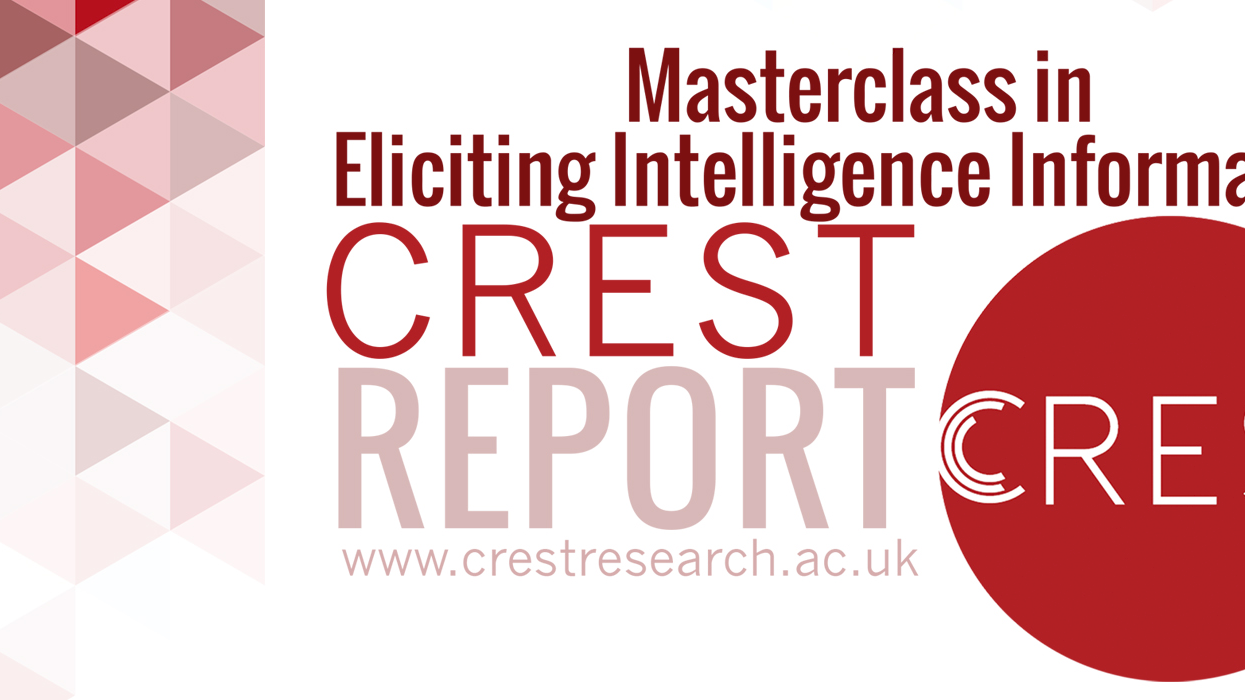An international group of researchers, including those funded by CREST, delivered a masterclass on intelligence interviewing to over 50 practitioners from European government, police, and military organisations. The day covered new techniques and findings from groundbreaking research and was delivered in partnership with the International Investigative Interviewing Research Group.
The speakers presented their research on different aspects of interviewing. This included explaining why rapport-based approaches get better results than tough tactics in interviews; revealing research findings showing that the greatest amount of information can sometimes be elicited by not asking questions (via the Scharff technique); and describing strategies for generating mutual understanding between interviewers and interviewees.
The full contents and presenters were:
- Pär-Anders Granhag, Gothenburg University, The Scharff Technique: How to elicit information from sources
- Laurence Alison, University of Liverpool, Why tough tactics fail and rapport gets results
- Lorraine Hope, University of Portsmouth, Eliciting information using a multi-modal Timeline Technique
- Paul Taylor, Lancaster University, Strategies for understanding others and helping them understand you
- Maria Hartwig, John Jay College of Criminal Justice, Implicit cognition in investigative interviewing: Using priming to promote disclosure
- Aldert Vrij, University of Portsmouth, Cognitive Credibility Assessment: A theoretical and empirical overview
Copyright Information
As part of CREST’s commitment to open access research, this text is available under a Creative Commons BY-NC-SA 4.0 licence. Please refer to our Copyright page for full details.






